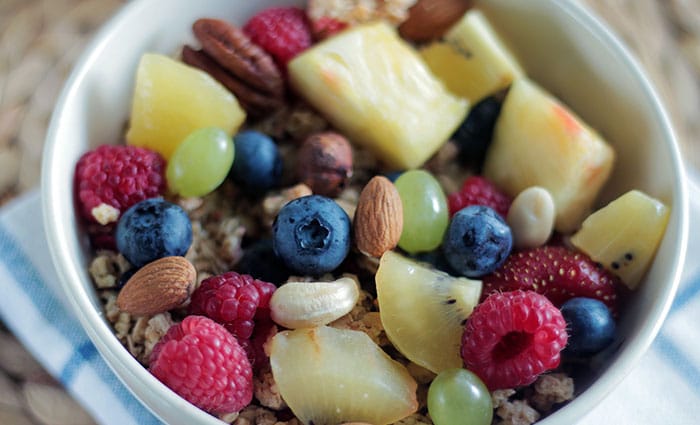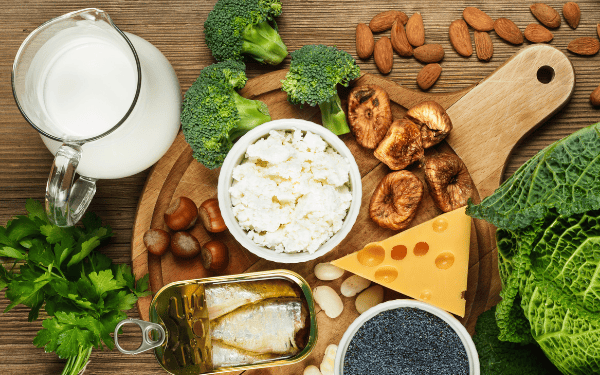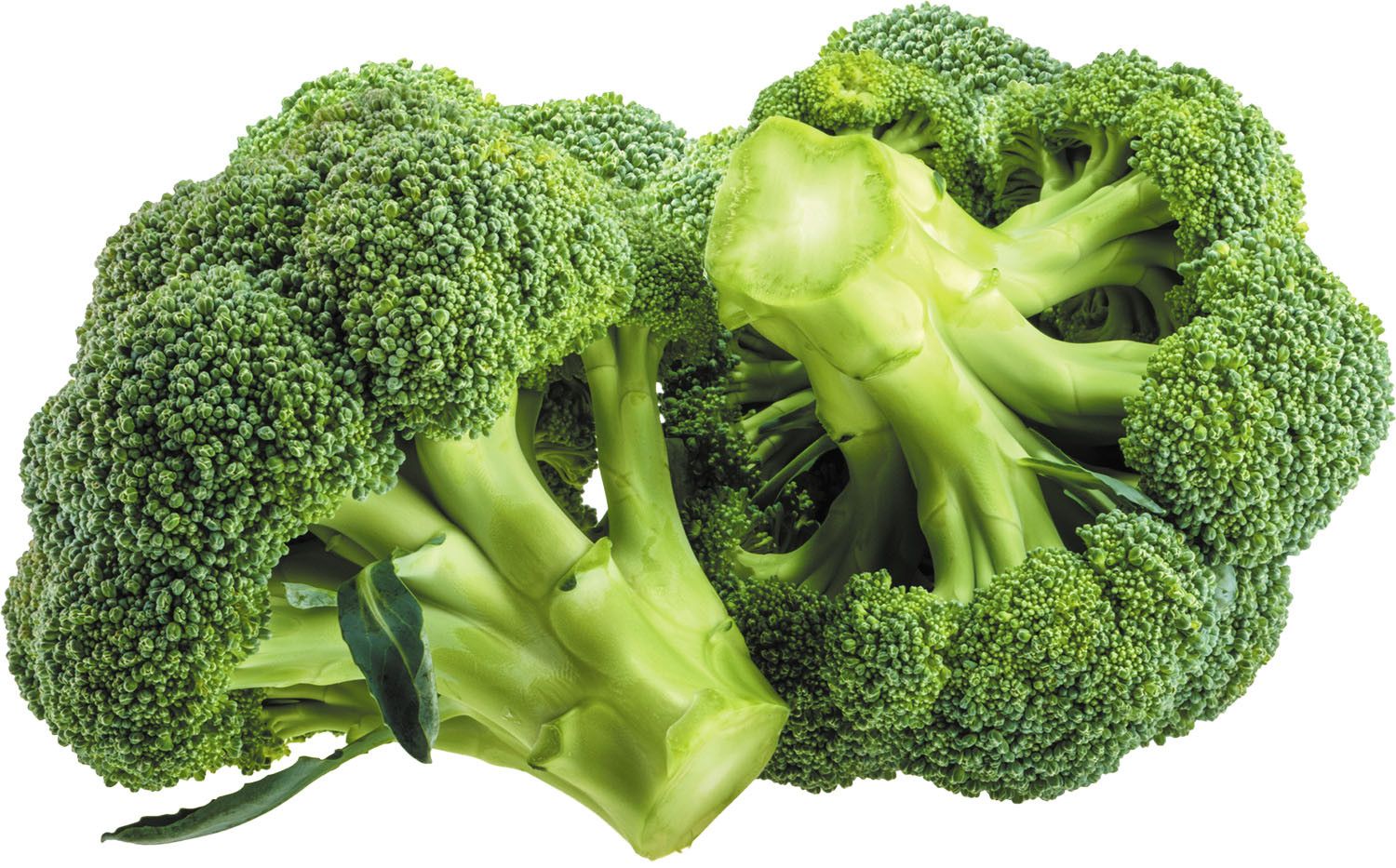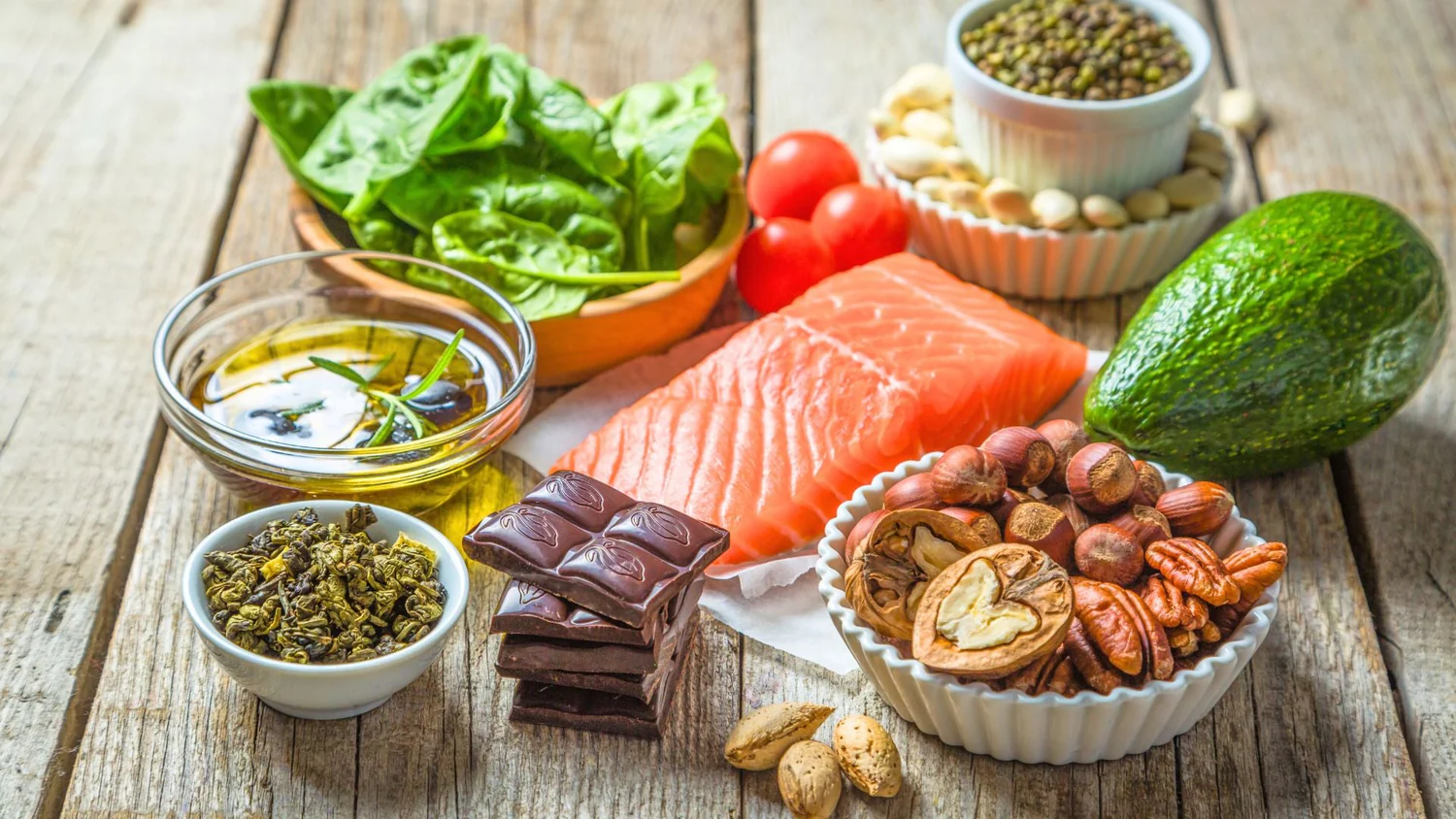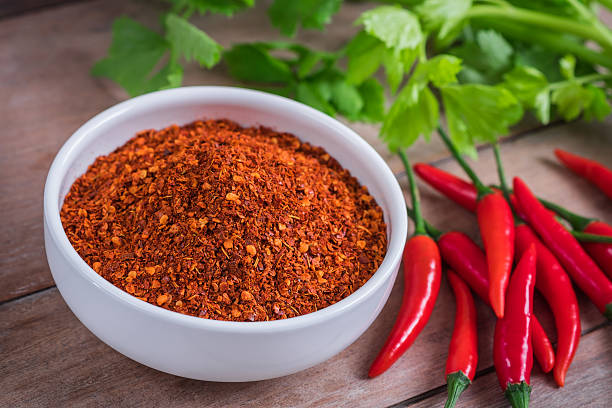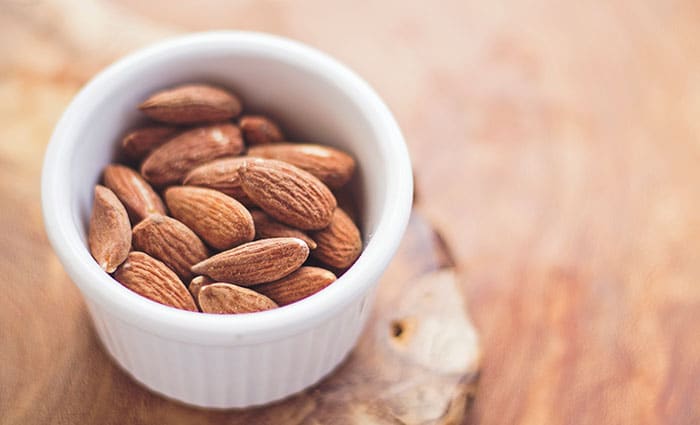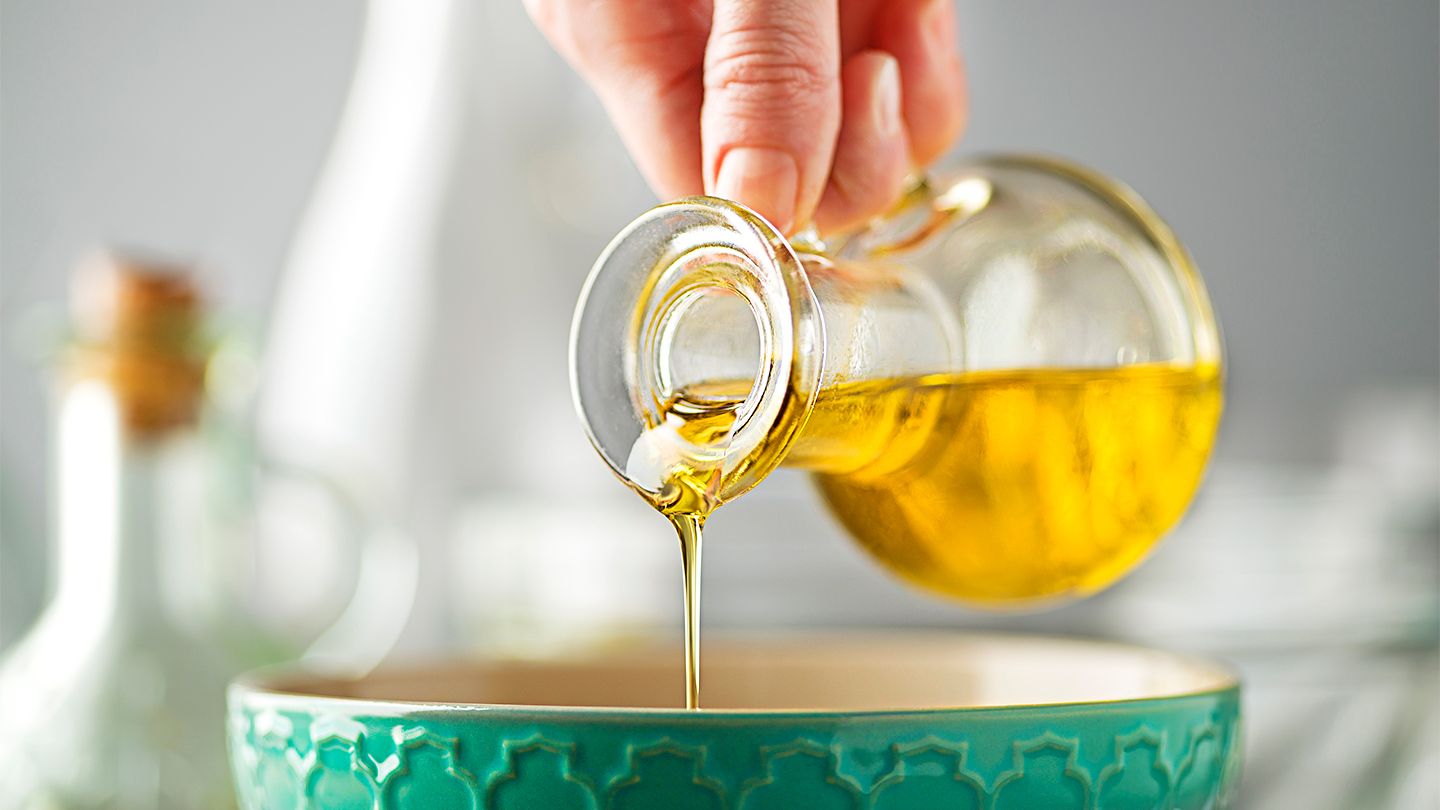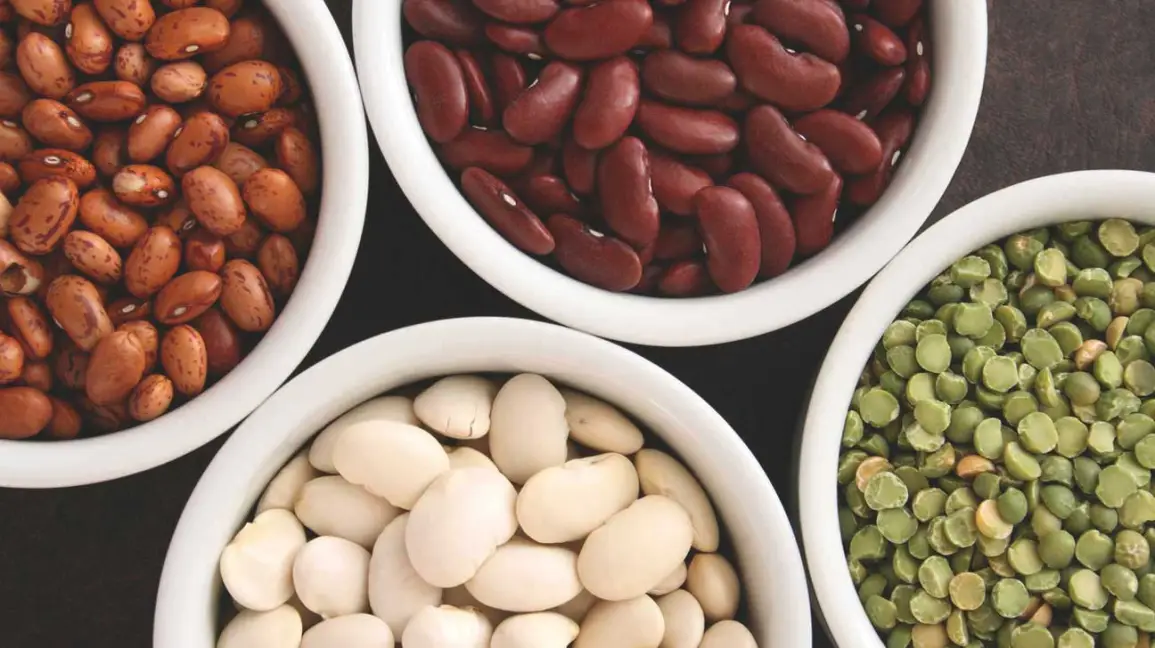
Maintaining joint health is crucial for an active and pain-free lifestyle, especially as we age. Our joints are constantly at work, helping us move, bend, and perform daily tasks. However, joint discomfort and conditions like arthritis can often make these simple activities more challenging. One of the most effective ways to support and maintain joint health is through a well-balanced diet. Certain foods provide essential nutrients that help reduce inflammation, support cartilage repair, and promote overall joint function.
In this article, we’ll look into 20 foods that can promote better joint health, reduce inflammation, and keep you moving comfortably for years to come.
The Role Of Diet In Joint Health
A healthy diet plays an essential role in managing and preventing joint pain, stiffness, and inflammation. Joint health is directly influenced by the nutrients we consume. Certain foods are packed with compounds that help reduce inflammation and promote joint lubrication, keeping your joints flexible and functional.
For example, anti-inflammatory foods like turmeric and ginger contain bioactive compounds that inhibit inflammatory pathways in the body. Omega-3 fatty acids, found in fatty fish and flaxseeds, help reduce the production of pro-inflammatory compounds. These foods, along with a variety of others, can support the health of your joints and help you live an active, pain-free life.
Anti-Inflammatory Foods
1. Turmeric
Known for its vibrant yellow color, turmeric contains curcumin, a powerful anti-inflammatory compound that can help reduce joint pain and stiffness. Curcumin has been shown to inhibit the activity of inflammatory enzymes and reduce the production of inflammatory cytokines.
2. Ginger
Ginger is another root that has long been used to alleviate pain and inflammation. It contains gingerol, a substance with potent anti-inflammatory properties. Regular consumption of ginger may help reduce the pain associated with osteoarthritis and rheumatoid arthritis.
3. Berries
Blueberries, strawberries, and raspberries are packed with antioxidants, particularly anthocyanins, which help reduce inflammation and oxidative stress. These antioxidants help protect the joints from damage caused by free radicals.
4. Leafy Greens
Spinach, kale, and collard greens are rich in vitamins A, C, and K, as well as antioxidants that support the immune system and reduce inflammation. Their high fiber content also helps to maintain a healthy weight, which is essential for relieving stress on the joints. Additionally, the benefits of leafy greensextend beyond just joint health they are packed with essential nutrients that support overall well-being and help prevent chronic diseases.
Omega-3 Rich Foods
5. Fatty Fish (Salmon, Mackerel, Sardines)
Fatty fish like salmon, mackerel, and sardines are excellent sources of omega-3 fatty acids. Omega-3s reduce the production of inflammatory molecules and help lubricate the joints, reducing pain and improving mobility.
6. Chia Seeds
Chia seeds are a plant-based source of omega-3 fatty acids. When consumed regularly, they can help reduce inflammation and support joint health. They are also high in fiber, which can contribute to overall well-being.
7. Walnuts
Walnuts are another excellent plant-based source of omega-3s. They are rich in alpha-linolenic acid (ALA), a type of omega-3 that helps fight inflammation and supports cardiovascular health, which is important for overall joint function.
Bone-Building Foods
8. Dairy (Yogurt, Cottage Cheese, Milk)
Dairy products are rich in calcium, which is vital for maintaining strong bones and preventing bone-related joint issues. Yogurt and cottage cheese also contain probiotics that support gut health, which can further reduce inflammation.
9. Bone Broth
Bone broth is made by simmering animal bones and connective tissues for long periods. It’s an excellent source of collagen, gelatin, and amino acids like proline and glycine, which help support the joints, cartilage, and tendons.
10. Tofu
Tofu is a great plant-based source of calcium and protein, essential nutrients for joint and bone health. It’s also rich in isoflavones, compounds that may help reduce the risk of joint inflammation.
Rich Sources Of Vitamin C
11. Oranges
Oranges are packed with vitamin C, which is crucial for collagen synthesis. Collagen is a protein that helps maintain the structure and integrity of cartilage and connective tissues, reducing the risk of joint damage.
12. Bell Peppers
Bell peppers, particularly red and yellow ones, contain more vitamin C than oranges. This antioxidant is vital for maintaining healthy joints and reducing inflammation in the body.
13. Broccoli
Broccoli is another excellent source of vitamin C and provides a wealth of other nutrients, including calcium, fiber, and antioxidants, all of which contribute to joint health. If you’re wondering how to make frozen broccoli taste good, there are plenty of ways to enhance its flavor. Try roasting it with olive oil and garlic or tossing it with a sprinkle of parmesan and your favorite herbs to bring out its natural taste.
Collagen-Boosting Foods
14. Chicken
Chicken, particularly the skin and connective tissue, is rich in collagen. Eating collagen-rich foods like chicken can help support joint health by promoting the repair and rebuilding of cartilage.
15. Egg Whites
Egg whitesare a great source of proline, an amino acid that is essential for collagen production. Consuming egg whites can help maintain the health of your joints and skin.
16. Gelatin
Gelatin, derived from collagen, has been shown to support joint health by providing the necessary building blocks for cartilage. It can be found in foods like homemade gelatin or gelatin-rich broths.
Healthy Herbs And Spices
17. Cayenne Pepper
Cayenne pepper contains capsaicin, a compound known for its pain-relieving properties. Capsaicin has been shown to reduce the substance P, a neurochemical that transmits pain signals to the brain. This can help alleviate joint discomfort, especially in conditions like arthritis. Regularly incorporating cayenne pepper into your meals can also boost circulation and reduce inflammation in the joints.
Nuts And Seeds
18. Almonds
Almonds are rich in healthy fats, fiber, vitamin E, and magnesium, all of which contribute to joint health. The vitamin E in almonds is an antioxidant that helps protect joints from oxidative stress, while magnesium plays a role in maintaining muscle function and preventing cramping around the joints. If you're looking for a dairy-free alternative, you can easily make homemade almond milkas a nutritious drink that also supports joint health, thanks to the natural benefits of almonds.
Healthy Oils
19. Olive Oil
Olive oil is a staple in the Mediterranean diet and a fantastic choice for joint health. It contains oleocanthal, a compound that mimics the effects of nonsteroidal anti-inflammatory drugs (NSAIDs) by blocking inflammatory pathways in the body. Regular consumption of extra virgin olive oil can help reduce joint stiffness and discomfort caused by inflammation.
Beans And Legumes
20. Lentils
Lentils are an excellent plant-based source of protein, fiber, and various vitamins and minerals that support joint health. They are rich in folate, which helps reduce homocysteine levels an amino acid linked to joint damage and inflammation. Lentils also provide a good amount of magnesium, which is important for muscle function and maintaining the health of bones and joints.
How These Foods Support Joint Health
The foods listed above contribute to joint health in various ways. Anti-inflammatory foods like turmeric and ginger help reduce swelling and pain in the joints. Omega-3 fatty acids from fatty fish and chia seeds support joint lubrication and reduce cartilage breakdown. Bone-strengthening foods like dairy and bone broth provide the necessary nutrients for maintaining healthy bone structure, while vitamin C-rich foods promote collagen production, essential for maintaining joint integrity.
Regularly including these foods in your diet can significantly improve joint mobility, reduce discomfort, and protect against the deterioration of joint tissues. Over time, these foods can help reduce the symptoms of arthritis and other joint conditions, promoting long-term joint health.
Tips For Maintaining Joint Health Beyond Diet
In addition to incorporating these joint-friendly foods into your diet, consider these tips for maintaining healthy joints:
- Stay Active: Regular physical activity, such as walking, swimming, or yoga, helps keep your joints mobile and strong. It also promotes the production of synovial fluid, which lubricates the joints.
- Maintain a Healthy Weight: Carrying excess weight puts extra strain on your joints, especially in the knees, hips, and lower back. Maintaining a healthy weight can reduce stress on your joints and prevent further damage.
- Consider Supplements: Some people find benefit in supplements like glucosamine, chondroitin, and omega-3s to further support joint health.
FAQs
What Are The Best Foods For Reducing Joint Inflammation?
Anti-inflammatory foods like turmeric, ginger, and fatty fish are highly effective for reducing joint inflammation. These foods contain compounds that inhibit the inflammatory pathways in the body, helping to reduce pain and swelling.
How Can I Improve Joint Health With Diet Alone?
Incorporating a variety of joint-supporting foods, including omega-3 fatty acids, antioxidants, and collagen-boosting foods, can significantly improve joint health. These foods help reduce inflammation, support cartilage repair, and strengthen bones.
Are There Foods That Can Help Rebuild Cartilage?
Foods rich in collagen, such as bone broth, chicken, and gelatin, can help support cartilage repair. Additionally, vitamin C-rich foods like oranges and bell peppers play a crucial role in collagen production, helping to maintain healthy joint tissue.
What Foods Should I Avoid For Joint Health?
Processed foods high in sugar, refined carbs, and trans fats can contribute to inflammation and worsen joint pain. It's best to limit the intake of fried foods, sugary snacks, and excessive alcohol to maintain optimal joint health.
Conclusion
Supporting your joint health through diet is one of the most proactive steps you can take to reduce pain, inflammation, and long-term damage. By including anti-inflammatory foods, omega-3s, vitamin-rich fruits and vegetables, and collagen-boosting options, you can significantly improve your joint function and mobility. Remember, consistency is key, make these foods part of your daily routine for long-lasting benefits.
